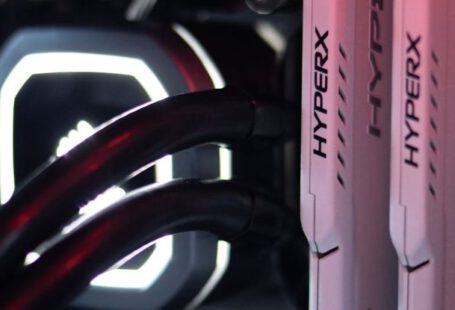Is your PC running smoothly, or have you been experiencing random shutdowns or strange behavior lately? While many users may overlook the power supply unit (PSU) when troubleshooting computer issues, it is a critical component that can significantly impact your system’s performance and longevity. In this article, we will delve into the reasons why testing your PC’s power supply is essential for maintaining a stable and reliable computing experience.
The Importance of a Reliable Power Supply
Your power supply is the heart of your computer, responsible for providing stable and consistent power to all components. A faulty or inadequate PSU can lead to a myriad of problems, ranging from system crashes and data loss to hardware damage. Ensuring that your power supply is functioning correctly is crucial for protecting your investment in expensive computer hardware and avoiding potential downtime.
Detecting Potential Issues Early
One of the primary reasons to test your PC’s power supply is to detect any potential issues early on. Over time, power supplies can degrade due to factors such as dust accumulation, component wear, or power surges. By regularly testing your PSU, you can identify any abnormalities in voltage output, ripple, or efficiency that may indicate impending failure. Addressing these issues proactively can prevent more significant problems down the line and extend the lifespan of your computer components.
Maintaining System Stability
A stable power supply is essential for maintaining system stability and preventing unexpected crashes or shutdowns. Inconsistent power delivery can cause your computer to behave erratically, leading to freezes, blue screens of death, or spontaneous reboots. By testing your power supply, you can ensure that it is capable of providing the necessary power to all components under varying workloads, minimizing the risk of performance hiccups or hardware failures during intensive tasks.
Protecting Your Data
In addition to hardware concerns, a failing power supply can also jeopardize your data integrity. Sudden power outages or voltage fluctuations can corrupt files, damage storage drives, or even render your operating system inoperable. By verifying the health of your PSU through testing, you can safeguard your important data and prevent potential data loss due to power-related issues.
Improving Energy Efficiency
An inefficient power supply not only impacts system performance but also contributes to higher energy consumption and increased electricity bills. Modern power supplies are designed to operate at peak efficiency within a specific load range, ensuring minimal power wastage and heat generation. By testing your PSU and replacing it if necessary, you can optimize energy efficiency, reduce your carbon footprint, and save money on electricity costs in the long run.
Ensuring Compatibility with Upgrades
If you are planning to upgrade your computer with new components such as a high-end graphics card or a faster processor, it is crucial to ensure that your power supply can handle the additional power requirements. Testing your PSU can help you determine whether it is capable of delivering sufficient power to support your upgrades without overloading the system. Upgrading to a more powerful or efficient power supply when necessary can prevent compatibility issues and ensure smooth operation of your upgraded system.
Conclusion: Safeguarding Your PC’s Performance and Longevity
In conclusion, testing your PC’s power supply is a simple yet essential step in maintaining a stable and reliable computing environment. By regularly checking the health and efficiency of your PSU, you can detect potential issues early, ensure system stability, protect your data, improve energy efficiency, and ensure compatibility with future upgrades. Investing time in testing your power supply can ultimately safeguard your PC’s performance and longevity, providing peace of mind and a smoother computing experience.





